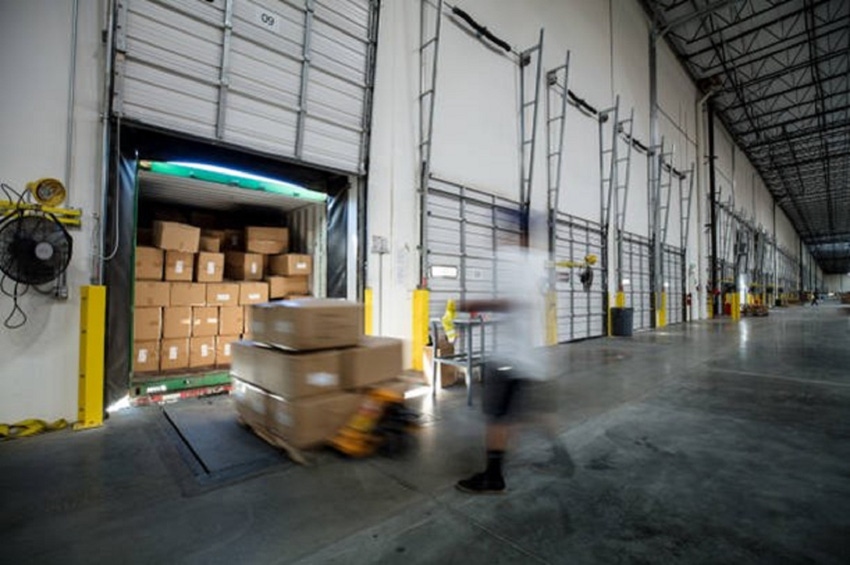Why Technology Is Key to Supply Chain Slump (SPONSORED)
With the continuous dominance of globalization, businesses of all sizes need to modernize their supply chain to increase flexibility and streamline operations to ensure resilience and growth. (SPONSORED)

Sponsored by Getac USA
The supply chain management market revenue totaled US $25.7 billion for 2023, according to Future Market Insights' latest study, and the overall market is expected to reach US $78.5 billion by 2033.
Among industry verticals, the market share for the retail and consumer goods sector is the largest among all. However, the transportation and logistics segment is estimated to grow at about 14.6% CAGR to emerge as the fastest-growing end user through the assessment period.
Digitizing supply chains through integration, automation, and secure and connected technology improves visibility, enables real-time analysis, enhances communication, and optimizes decision-making. It also mitigates the risks of unexpected delays, inflation, and labor shortages while controlling costs and improving productivity.
Often, when organizations implement technology solutions, they focus on backend solutions and overlook the value of empowering frontline workers.
These employees work in a high-pressure, high-stress environment, leading to increased burnout. According to Gartner, there are more frontline workers in the supply chain workforce than desk workers, and their well-being cannot take a back seat.
Enabling frontline workers with rugged hardware and software solutions that integrate with warehouse management systems, mounts, and docks improves workflows, ensures accurate records, reduces handling errors, and improves safety.
Rugged hardware is critical to withstand extreme conditions, including drops of up to six feet, harsh temperatures, and humidity. Rugged devices feature fully sealed keyboards to protect against intrusion by dust or liquids and scratch-resistant screens that are readable in direct sunlight.
For materials handling professionals, rugged tablets with configurable options provide a lightweight form factor for one-handed mounting and dismounting. The stylus helps replace pen and paper for record-keeping, while the devices’ cameras render many verbal descriptions unnecessary, thus making data easier to preserve and transfer.
Combined with customized software, including barcode readers, for example, rugged solutions simplify various tasks, including parts, assets, inventory tracking, and information sharing. Designed for fieldworkers, barcode readers offer diverse and configurable scan modes and custom UPC schemes that can be integrated to personalize tracking management to fit unique use cases.
The software can also enhance management capabilities through seamless integration with an organization’s existing warehouse management system. The software has precise asset-tracking capabilities that can provide real-time monitoring of scanned assets. With an efficient and effective barcode scanning function that seamlessly integrates scanned information with legacy systems, barcode readers are instrumental in increasing the efficiency and productivity of frontline workers.
Rugged hardware and software solutions increase efficiency for workers in additional industries, including:
Utilities: Increases productivity and improves onsite safety for workers conducting meter readings or monitoring energy assets. Further, the software can be used to identify equipment or access manuals and service records easily.
Industrial Manufacturing: Rugged solutions allow you to connect to machines on the shop floor so you can perform industrial programming, directly control robots, gather technical data, and identify potential equipment issues early.
Healthcare: Supports workers that aid patients' identification, enables medication administration, as well as the need to track equipment.
Public Safety: Rugged solutions integrate frontline emergency services personnel to the command-and-control center for cohesive operational decisions and intelligence.
Oil & Gas: Technology solutions enable remote support, on and offshore asset management, and field data analysis, improving workplace safety.
Retail: Supports workers who routinely conduct price checks, stock management, and checkout processing.
Based on a MarketScape report from IDC titled “Worldwide Rugged Mobile Devices 2023 Vendor Assessment” report, Bryan Bassett, Research Manager of Enterprise Mobility at IDC, notes that:
"Rugged mobile devices are mission-critical business tools in 2023, designed to serve specific enterprise use cases in hazardous frontline working environments where hardware durability and capability is critical. Whether it be at a warehouse, storefront, hospital, or home doorstep, chances are most manufactured and shipped goods worldwide have at one point or another crossed paths with a rugged mobile device.
With increased mobilization efforts targeted at frontline workers, rugged mobile deployments will see increased demand, as will expanded rugged use cases. Businesses require durable, capable, and purpose-built mobile devices to enable frontline workers in this second wave of digital transformation, and rugged devices will play a crucial role in these efforts."
For rugged industries, leveraging the right devices is necessary to avoid continuous product purchasing or device fitting due to damage and increases in the total cost of ownership. Combined with intelligent software, these solutions streamline business operations, improve frontline productivity and safety, and ultimately, increase the bottom line.
Getac provides rugged mobile devices, such as laptops, tablets, and customized software to enable extraordinary experiences for frontline workers in challenging environments, including the supply chain industry. Working closely with customers and ecosystem partners, we configure solutions to meet industry demands and unique user scenarios.
About the Author(s)
You May Also Like
How to Amplify DevOps with DevSecOps
May 22, 2024Generative AI: Use Cases and Risks in 2024
May 29, 2024Smart Service Management
June 4, 2024







